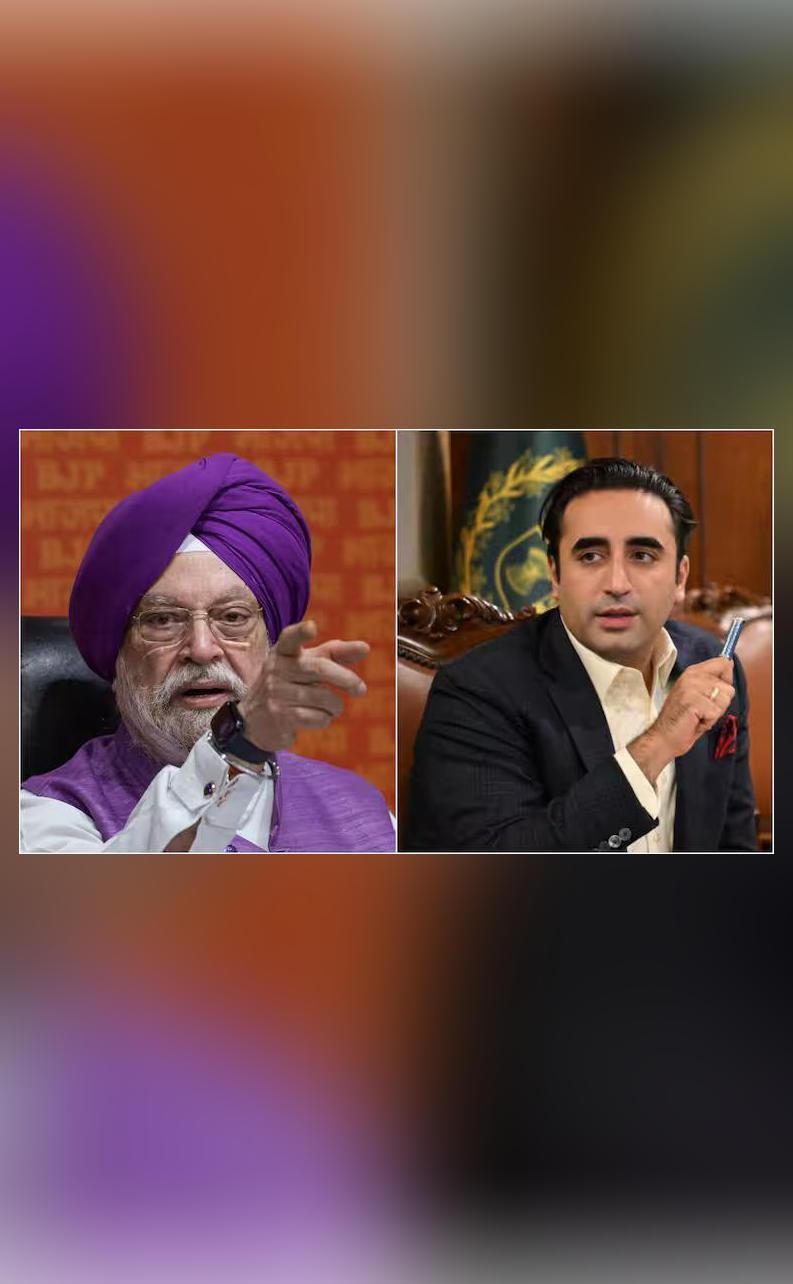
Look at what PM Modi said & wait for few days: Puri to Pak leader
The recent Pahalgam attack in Jammu and Kashmir has sent shockwaves across the country, and the aftermath has seen a plethora of reactions from politicians and leaders from both sides of the border. In the midst of this heightened tension, Union Minister Hardeep Singh Puri has issued a veiled warning to Pakistani politicians, including Bilawal Bhutto, who made a provocative remark on India’s decision to suspend the Indus Waters Treaty.
In an interview, Bilawal Bhutto, the Chairman of the Pakistan Peoples Party, had said that Pakistan would not hesitate to defend its water and blood, in response to India’s decision to suspend the treaty. This remark has been widely seen as a threat, and Hardeep Singh Puri’s response has been seen as a warning to Pakistan to refrain from such aggressive rhetoric.
When asked about Bilawal Bhutto’s remark, Puri said, “Look at what PM Narendra Modi said in Bihar…and wait for a few days.” This statement is significant because it implies that there may be a greater response or action from India in the coming days.
For those who may not be aware, PM Modi had recently said in a rally in Bihar that India will identify, track and punish every terrorist and their backers. This statement was made in the aftermath of the Pahalgam attack, which saw 10 people killed and several injured. The attack was carried out by terrorists who entered the temple town and opened fire on devotees, triggering widespread outrage and condemnation.
Puri’s statement is being seen as a warning to Pakistan to take concrete action against terrorist groups operating from its soil. The suspension of the Indus Waters Treaty is a significant move, as it is a bilateral agreement that governs the use of water resources in the region. However, India’s decision to suspend the treaty is seen as a response to Pakistan’s continued support to terrorism and its failure to take effective action against terrorist groups.
Bilawal Bhutto’s remark, on the other hand, is seen as a provocative and aggressive response. By saying that Pakistan would defend its water and blood, Bhutto is essentially threatening India with military action. This kind of rhetoric is not only irresponsible but also escalatory, as it can quickly escalate tensions between the two countries.
In the past, India and Pakistan have had a tumultuous relationship, with several wars and skirmishes over the years. The current situation is no different, with both countries accusing each other of supporting terrorism and engaging in subversive activities.
The Pahalgam attack has once again highlighted the need for India to take strong action against terrorism. The attack was carried out by terrorists who entered the temple town and opened fire on devotees, triggering widespread outrage and condemnation. The attack has also led to a massive security crackdown in Jammu and Kashmir, with the Indian army and police conducting operations to track down the perpetrators.
In the midst of this heightened tension, Hardeep Singh Puri’s statement is seen as a warning to Pakistan to take concrete action against terrorist groups operating from its soil. The statement is also seen as a message to Pakistan that India will not hesitate to take strong action if it feels threatened or provoked.
The current situation between India and Pakistan is complex and sensitive, and it requires careful handling. However, the fact remains that Pakistan has a long history of supporting terrorism, and its failure to take effective action against terrorist groups has led to several attacks on Indian soil.
In conclusion, Hardeep Singh Puri’s statement is a warning to Pakistan to refrain from aggressive rhetoric and to take concrete action against terrorist groups operating from its soil. The statement is also a message to Pakistan that India will not hesitate to take strong action if it feels threatened or provoked. The current situation between India and Pakistan is complex and sensitive, and it requires careful handling. However, the fact remains that Pakistan has a long history of supporting terrorism, and its failure to take effective action against terrorist groups has led to several attacks on Indian soil.



